#studyblr ref
Text
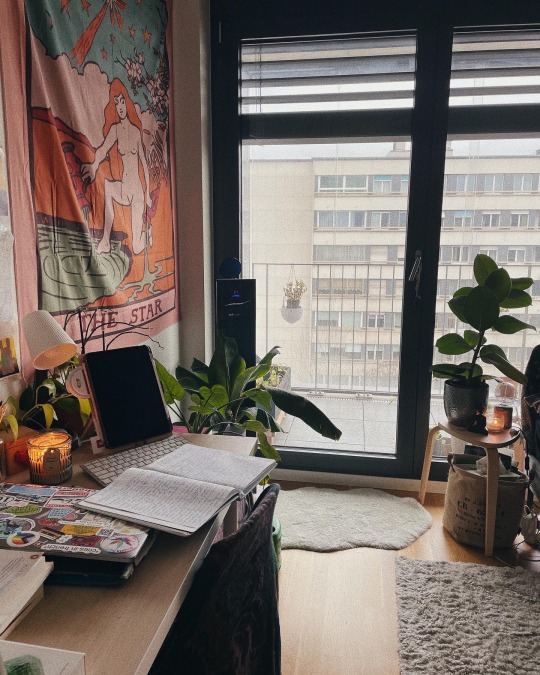
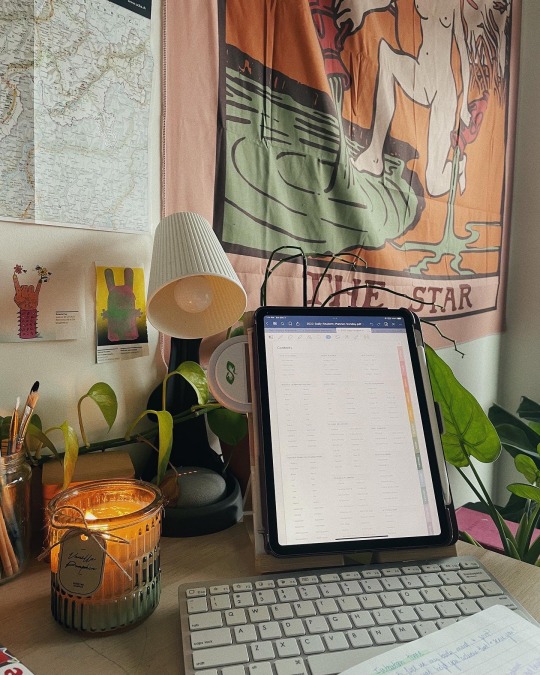
[04.12.22] ✧ my little home ft my new 2022-2023 digital planner from @emmastudies
Feeling cozy being inside and resting on the weekend.
I am so happy to share that I have an incredible therapist in Geneva and I have been working out (ya girl joined a boxing club haha what!!). I have also been prioritizing comfort and warmth around me - in the literal sense - and have been wearing looser and comfier clothes, not realizing I had been ignoring my cues on touch sensitivity and overstimulation.
And let me tell you, and I have felt incredibly better.
Like, suddenly I’m less depressed, which is a bit wild because I don’t remember the last time I’ve felt “less depressed”?
Mostly now it’s really a sensation of comfort and warm and soft and looking forward to things and ooh this feels good or yes I can do that. And I feel it really in the center of my body, like in my heart space and solar plexus chakra - like the energy is just radiating! It’s a sensation I hold onto when I go into situations that I know will stress me out.
It’s also a sensation that has helped me feel less anxious about leaving my apartment - an anxiety deeply rooted with the social and physical discomfort of going outside and doing things. Discomfort in the sense of a bit of social anxiety, a bit of exhaustion, most often a discomfort with the temperature, some sort of looming responsibility or deadline (work, school), and the stimulation-saturated overwhelming nature of the public. But I know I am feeling a bit better because this is getting easier for me. ♥️
Anyway, explanations over! I hope all of you are finding some sweet rest and warmth during the change of season. 🤍
#studyblr#delciastudies#geneva#aesthetic#studyblr ref#grad school#travel#study vibes#switzerland#vsco#mental health is important#self care#comfort
362 notes
·
View notes
Text
Searching best practices on JSTOR
Hi Tumblr researchers,
As promised, we're going to dive into some best practices for searching on JSTOR. This'll be a long one!
The first thing to note is that JSTOR is not Google, so searches should not be conducted in the same way.
More on that in this video:
youtube
Basic Search on JSTOR
To search for exact phrases, enclose the words within quotation marks, like "to be or not to be".
To construct a more effective search, utilize Boolean operators, such as "tea trade" AND china.
youtube
Advanced Searching on JSTOR
Utilize the drop-down menus to refine your search parameters, limiting them to the title, author, abstract, or caption text.
Combine search terms using Boolean operators like AND/OR/NOT and NEAR 5/10/25. The NEAR operator finds keyword combinations within 5, 10, or 25 words of each other. It applies only when searching for single keyword combinations, such as "cat NEAR 5 dog," but not for phrases like "domesticated cat" NEAR 5 dog.
Utilize the "Narrow by" options to search for articles exclusively, include/exclude book reviews, narrow your search to a specific time frame or language.
To focus your article search on specific disciplines and titles, select the appropriate checkboxes. Please note that discipline searching is currently limited to journal content, excluding ebooks from the search.
youtube
Finding Content You Have Access To
To discover downloadable articles, chapters, and pamphlets for reading, you have the option to narrow down your search to accessible content. Simply navigate to the Advanced Search page and locate the "Select an access type" feature, which offers the following choices:
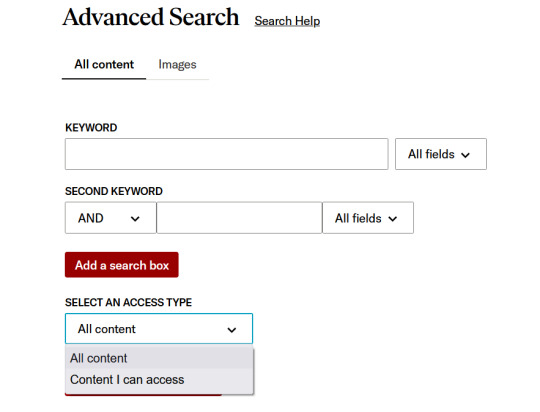
All Content will show you all of the relevant search results on JSTOR, regardless of whether or not you can access it.
Content I can access will show you content you can download or read online. This will include Early Journal Content and journals/books publishers have made freely available.
Once you've refined your search, simply select an option that aligns with your needs and discover the most relevant items. Additionally, you have the option to further narrow down your search results after conducting an initial search. Look for this option located below the "access type" checkbox, situated at the bottom left-hand side of the page.
Additional resources
For more search recommendations, feel free to explore this page on JSTOR searching. There, you will find information on truncation, wildcards, and proximity, using fields, and metadata hyperlinks.
#happy researching!!!#jstor#research#academic research#academic writing#academia#academic database#searching#higher education#students#colleges#university#learning#teaching#librarians#libraries#Youtube#studyblr#ref
2K notes
·
View notes
Note
I’m moving into college in 3 weeks have you got any tips :0
yes!! quite a few actually. :) *for mutuals outside of the u.s., this advice is based on a U.S. American university experience, so some of it may not apply to you.
PLEASE SEND ASKS if you have specific questions, and I’ll either speak from my own experience or give information from other friends in university rn!!
packing:
You don’t need to bring ALL your stuff. (Really, it’s okay. Also, you have limited space.)
A quick Google search of “college packing list 2023” will yield many results. It’s up to you to decide what “essentials” are actually essential, but suffice it to say, think about the things you use on a daily basis and then think about what you don’t have at home that you’ll need in student housing.
Apartment or dorm, unless you’re really lucky—you’ll be sharing living space & appliances with other people. Yes, that includes showers. If you can get toiletries cheaper locally than in the location of your university, save yourself the time and money. Shower shoes are an absolute must, because those showers can get disgusting.
If you have a meal plan that lasts the entire year, you don’t really need to pack a bunch of food (or go grocery shopping a ton during the school year) but it can be nice to have dry goods & snacks on hand. (I keep rice, macaroni & cheese, crackers, & some type of dried fruit around, if nothing else. Whatever tastes strike your fancy, feel free to add/substitute.) If you’re cooking all your own food, you’re going to need at least a cooking pot, frying pan, spatula, dish sponges, and dish soap, as well as some resealable food storage containers and cheap cups and bowls (I got most of that at Target. They tend to have back-to-school sales and bowls & cups go for less than a dollar each.)
Laundry is going to be a pain in the ass, unless again, you luck out and have a washer and dryer in-unit. Ditto for dishes (unless your space comes with a dishwasher). Do yourself a favor & get a huge bin of Tide pods, pack of laundry sheets, & at least two paper towel rolls so you don’t have to run out every week to replenish cleaning supplies. (I personally despise having dish towels to wash, so if you don’t mind them take the paper towel advice with a grain of salt.)
My dorm was weird and had a sink in it. If you’re responsible for cleaning your own sink it will get nasty quickly. Either take turns with your roommate(s)/housemate(s), or figure out who the designated sink cleaner is.
friends/socializing:
Your first friend group in college will likely not be your last, nor will it last. This group is usually composed of people close in proximity to you aka convenience friends. You might realize three or four months in that these are not your people and you don’t like hanging out with them. This is perfectly normal and okay! You’ll find people who you do vibe with. I encourage you not to limit making friends to your specific university, although if you go to a small one like I do that can be tough.
Universities often have events with free stuff, including free food. Take advantage of these events if & when you can. They’re usually very laid back, and if you’re not in the mood to stick around, you can grab food and then dip.
Orientation events & icebreakers within your first week are to be expected. Try to remember a fun fact about yourself (which is what you usually get asked, along with your intended major, name, pronouns—sometimes, & hometown).
Your RA(s) aren’t cops, but they also aren’t your friends. They’re required to report sketchy shit that happens. My RAs had a rule that if they didn’t hear, see, or smell anything suspicious, it was like nothing happened, but try to get a feel for what yours look out for.
It is more than okay to need/want therapy. You’ve just gone through a massive change in your life and you did it mostly, if not all, by yourself. Your university counseling services (if applicable) are generally not the best place to go for therapy, though. This is especially true if you’re worried about your privacy. I don’t think I’ve heard of student discounts for therapy, but some therapists have this policy called sliding scale where you pay what you can. Find a person you can talk openly with and who is experienced with your mental health concerns/practices the right kind of therapy for you. (CBT, DBT, & EMDR are a few examples.)
dating, love, etc.
First and foremost, if this section doesn’t apply to you because you don’t participate or aren’t ready to in college, please feel free to skip!
If you’re still here, obviously I am not the expert on your love life—you are. That being said, without getting too personal, here are some things I’ve picked up through trial and error.
If you’re starting college, and haven’t yet dated anyone, it’s okay to feel behind. What isn’t okay is being patronized or taken advantage of for your lack of experience. I wish I could say it’s just common sense, but it’s crucial to figure out what your boundaries, limits, & standards are before getting into an intimate situation with somebody. (I myself learned this the hard way.)
simply put: It is okay to be picky! (Read that again.) Or not—what works for one person won’t work for everyone. Some people date & hook up just for fun, especially during college when a lot of changes are happening, and that suits them fine. Some people want stronger, longer connections, and that works for them. Some people focus on friends over partners and refrain from the entire dating & hookup scene. All are valid and healthy. (As long as you stay safe, sane, & consensual, and get tested.)
school stuff:
Please do yourself a favor and don’t schedule 8am classes five days a week. I don’t care if you could do it in high school—chances are you’re going to need to wake up way beforehand to get ready OR your roommate will do something ridiculous in the middle of the night that will wake you up. In this more than likely event, you won’t want to wake up and go straight to class. If you’re not a STEM major, this advice is easier than if you are (and if the first applies, my condolences and much love).
You need sleep no matter what—if that means midday naps, go for it. I don’t recommend skipping class to nap unless it’s an emergency though.
Re skipping class: some professors take attendance and your grade can suffer if you don’t attend. Aside from mental health days, skipping class for fun can be a slippery slope at some universities. (At some, Cs get degrees and grades don’t matter as much, especially if you aren’t looking to go down the postgrad path.)
#college#university#uni#universidad#college tips#college advice#general advice#asks#answered#school#studyblr#ref#host posts
113 notes
·
View notes
Text
Mango v. LingQ v. Anki
I’ve been using the above apps for a while now and I couldn’t find a ton of somewhat easy to understand comparisons/explanations of how to use these various cult favorites. I figured I would make one if anyone is wondering where to start or making a departure from Duolingo.
Standard langblr disclaimer: I am ultimately just a person on the internet, I’m not an expert in language learning or a world renowned polyglot. I’m not even an expert in any of these apps/programs. These are all just thoughts and opinions I have about the value of each app to myself as an average consumer trying to learn a language and intended to help other people decide where to spend their time.
Anki
Anki is an open source spaced repetition flashcard program. It has an incredibly loyal fan base of med students and people who just want to learn things. This is also the one I have the least experience with so I recommend diving into forums and other blogs who go in depth on all the ways you can use this program. The web version is completely free and there is an official paid mobile app. There are also unofficial paid apps, this is the source of great drama and discourse and I’m not touching that here. Spaced repetition essentially means that the program will present you with cards at intervals designed to maximize your retention. When you flip over a card, you have four options that boil down to: fail, hard, good, easy. This is how the program determines what to show you and when.
Key Features:
The main draw is obviously the spaced repetition system. It’s much easier and more effective than sorting manually.
Because it’s open source, there is a way to customize the settings and cards to do basically whatever you want. There are also tons of premade decks to import and either use as-is or use as a base.
The online web version is completely free.
You can add really any media type to the cards. You can add sound clips of pronunciations, images, even drawings and diagrams.
Having the four options is particularly useful for the nuances of learning a language. For example, for general vocabulary decks I’ll assign one “point” to general meaning, tense/part of speech, and pronunciation. Getting the general meaning but not the other two means I select “hard” when I flip the card.
Best uses:
Vocab or learning a new alphabet. Specifically for drilling any of those “slippery” words. I don’t know if this happens to anyone else, but there are some vocab words that just refuse to stick with me. I’ve found the Anki SRS does help pin them down.
Potential downsides:
While there are decks to import, there could always be errors that you won’t catch just seeing single vocab words with no context.
The available customization is labor intensive.
The UI for the official app and web version isn’t super slick and intuitive.
Even the best flashcards are ultimately just flashcards and have limits to their usefulness.
Mango
Mango is similar to Babbel or other programs that focus on speaking (and doing so quickly). I much prefer Mango to Babbel or any other similar app and find that it does what it says it will. Languages are split into units. Each unit has chapters and each chapter has lessons. A lesson will start with an optional pre quiz and a brief recording of a conversation that you will be able to follow by the end of the lesson. Each lesson concludes with a listening and reading quiz. It also utilizes spaced repetition and gives you daily flashcards to review.
You learn based on phrases rather than individual words. A long sentence will be presented in its entirety. The lesson will then go through each word individually before combining them into phrases and, finally, the full sentence from the start. Then you will learn vocabulary needed for variations. The activities are fairly standard for a language app: speaking, listening, multiple choice. You can also turn off the interactive feature and have the lesson run as a “speak and repeat” style podcast. It tracks the hours you’ve spent learning a language and there is an activity log, but no in depth stats.
Key features:
It is focused on speaking immediately.
Has a ton of languages and several dialects for those languages.
Focuses on phrases and patterns that are most useful if traveling or having brief, friendly interactions.
Presents information in a digestible way and isn’t overwhelming.
Includes culture and grammar notes.
$12.99 a month but most public libraries and schools give you free access. You can also set up a household account for multiple people and split the cost with friends/family.
The first lesson of any language is free, and some rare and indigenous languages are completely free to access.
Audio is native speakers. When you record yourself, your vocal wave pattern appears that you can compare with the native speaker.
Best uses:
If you are traveling soon and want to navigate basic, friendly interactions, this will get you there quick. Within 1-3 months easily, depending on the language and how often you practice.
I also recommend this as a starting place when you are totally new to a language or to learning a language in general. The structure is excellent for getting a feel for things.
This is also great if you studied a language previously and need to refresh your memory or get back into it.
Potential downsides:
The “record yourself” feature is fairly buggy and often freezes up. It can also be annoying to try and match the timing of the native speaker, but you don’t have to record audio to progress past those lesson points so it isn’t too much of an inconvenience.
It isn’t meant for total fluency. As stated, the lessons (at least that I have done) are focused on speaking while traveling and making small talk. Some of the early lessons teach you to say “sorry, I don’t speak [x]”. Which is very useful if going abroad soon, but less so if you would rather just be able to speak that language.
The regimented nature can make it feel slow/too easy if you are also using other methods.
The review flashcards only have a binary “yes/no” option which feels annoying for longer phrases or after using Anki-style cards.
With any course like this, you aren’t going to have much choice in the vocab you learn or prioritizing topics.
LingQ
I am honestly surprised I don’t see more about this. I think they have been making a bunch of updates recently so maybe the version I’m using is miles above previous ones, but it is shockingly powerful. It’s also the hardest to explain (which may be why I don’t see much written about it and why this is going to be a long section.) LingQ (pronounced “link”) operates on a hybrid comprehensible/massive input model. While Anki prioritizes memorization and Mango priorities speaking, LingQ focuses on comprehension and listening. LingQ is comprised of courses which are made up of lessons. There are pre-built courses made by LingQ but the real goal is to make your own (more on that later).
Each lesson within a course has an audio recording and a written transcript. Words you haven’t seen before are highlighted blue (when you start, that’s every word). You click the word to see the definition and assign it one of 5 statuses: ignore, new, recognized, familiar, learned, or known. “Ignore” is used for things like names or borrowed words, they won’t be counted in your stats. “Known” is for words you knew before seeing them. You likely won’t have any of these if you’re starting a new language with no prior experience. Levels 1-3 highlight the word yellow and it becomes a LingQ. You can create a LingQq using as many words as you want. You can manually change the status of a word when you see it. You can also do various review activities similar to Mango, and if you get a word right twice in a row it will automatically bump up a level. You can always adjust it back down if needed. LingQ is very focused on the value of listening to a language. You can add lessons to playlists and listen to them like a podcast.
My personal favorite part of LingQ is the ability to import lessons. Especially YouTube videos. The site has a browser extension that will import any content in your target language into a lesson as an embedded item. You can then read/listen to/watch that content right in the app and get “credit” for it. LingQ’s statistics are some of the coolest/most motivating I’ve seen. You get coins for completing tasks but those are really just to see a number get bigger. It also tracks the words you’ve read, how many words you know, the hours listened, and speaking/writing if you utilize their tutor marketplace or writing forum.
The free trial is very limited but it’s enough to poke around and get a feel for things before signing up, not necessarily to learn anything substantial. The monthly membership is $12.95 and there’s a $199 lifetime option as well. I definitely recommend spending some time playing around at the free level and then upping to monthly if you like it.
Key features:
The ability to import lessons. It will also create a simplified version of shorter content. This is an AI generated summary of whatever you’ve imported. I use this for videos where natural speaking cadence can make it hard to parse things sometimes. It’s easier/more productive if I know generally what’s going on.
The creation of LingQs. I just think it’s a really cool and useful way to approach comprehensible input. You can visually see the yellow fading as you understand more and more of a lesson.
You can export LingQs to Anki (theoretically). I’ve never done this myself and I’ve seen some forum posts saying it doesn’t work super well all the time but it is a built in feature.
In-depth stats tracking and the ability to consume all the content easily in app. The stats would be annoying if it wasn’t literally easier to watch a video via LingQ than on YouTube.
Community features. There are community challenges (like Duolingo) but also a forum to submit writing that will be corrected by native speakers and a marketplace of tutors to easily sign up for speaking lessons. The forum is free and volunteer based, but scrolling through I didn’t see anyone who didn’t have at least one reply. The tutors are paid at an hourly rate and you can also pay by the word to have them correct written work.
Super flexible. There really isn’t any one right way to use this app so you can structure it however you like and set your own goals/metrics.
Playlists and focus on listening. It really does help to constantly be immersed in what a language sounds like, and being able to read and listen to the same thing has been so nice.
Actually decently helpful emails and not just spam.
Best for:
Hardcore language learners. The app/site provides some guidance on how to get started and the basic idea, but you’ll need to play around with it and spend some time reading forum posts or the emails they send to find what works for you.
Getting to higher levels of fluency after maxing out other apps/self study methods.
People looking to spend a lot of time on language learning because they enjoy it. This isn’t snarky, but there’s a difference between wanting or needing to learn Spanish to communicate at work or on vacation and just really enjoying learning languages. This is an app for language nerds.
Potential downsides:
Very overwhelming. They technically say you can jump right in with 0 knowledge of a language and be good to go, but I think it would be hard to make a lot of progress unless you’ve learned other languages before. If you’re looking to learn a new language for the first time, I recommend starting with Mango to get your bearings.
Doesn’t teach new alphabets. This isn’t a huge issue for Mango since it’s speaking focused, but I wouldn’t jump into Arabic or Russian on LingQ without spending some time learning the alphabet with other methods.
User generated definitions. This is a double edged sword. The definitions being linked to sites like Globse can lead to wrong definitions, but because you’re seeing things in context it’s easier to catch. And looking into what a phrase means is a great way to learn if you are really into languages.
The import feature isn’t 100% perfect when it comes to videos. It will only create a transcript when the video has captions enabled or a transcript provided, otherwise it just shows up as an audio file. It will also sometimes randomly just not be able to import a video which can be annoying, but in the grand scheme of things these are very minor annoyances.
Time commitment. The method doesn’t require a ton of actively sitting down and reviewing vocab or reading new words, but it does assume that you’ll swap out listening to music or podcasts while going about your day with listening to content in your target language. This is all well and good unless you really enjoy listening to specific content while doing tasks or need help not getting distracted. It’s going to be a lot of incomprehensible noise for a while before you can parse it. This might not be a downside as much as something to keep in mind when considering how effective it’s going to be for you.
Not as active of a community. Maybe it’s just for my particular languages, but there definitely aren’t a ton of people actively doing things like challenges. This really doesn’t matter much to me but it could be a bummer if you’re looking for that.
tl;dr just tell me how to learn things
If you need to learn a new alphabet, start with that. Otherwise, Mango to get your bearings, Anki to add to your vocab as you get bored with Mango, and LingQ to realistically get “fluent”. Then start writing and speaking either using tutors or people you know or local language groups.
#mine#long post#ref#reference#review#language apps#language resources#langblr resources#language learning#resources#arabic langblr#langblr#mango app#lingq#anki#studyblr#language app review#app review#flashcards#language#italian langblr#duolingo
24 notes
·
View notes
Text

journal // @wyyae // insta: artwyy
#studyblr#studyspo#mine#bullet journal#bujo#ref#bullet journal spread#bujoweeklyspread#bullet journal inspo#bujo ideas#bullet journal ideas#diary#bujo inspo#bujo inspiration#study#bujospo#study aesthetic#bujo spread#notes#art#journal#journaling
373 notes
·
View notes
Text

12.06.22 10.48am
Some days you just have to accept a messy. Non-aesthetic study session.
#studyblr#studyspo#studying#study#study motivation#study inspiration#mine#medblr#note taking#notes#medicine#bujo#university#med school#med#medical school#ref#uniblr#studyspiration#student#student space#student life#study aesthetic#academia#med student#medical student
431 notes
·
View notes
Text
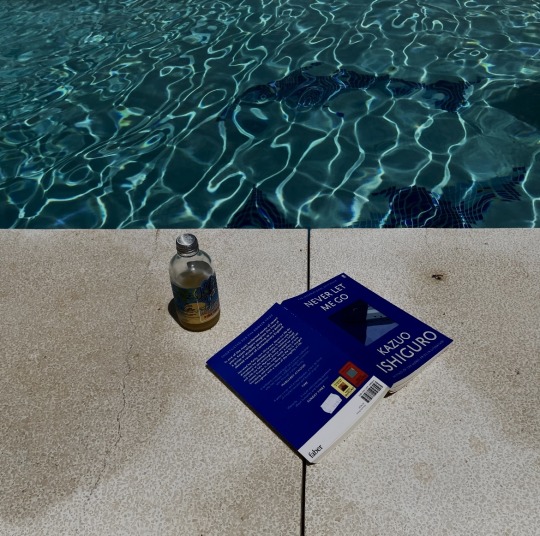

20.07.22, wednesday
if all the world remains this shade of blue, I’ll forget it all but you
#(song ref: Blue & You by Mad Honey (very good))#bookblr#studyblr#booklr#aesthetic#books#reading#read#study#book#studyspo#aes#july 2022#2022
183 notes
·
View notes
Text

just chilling and studying with my Belphegore candle set up. Master of discovery, invention, and riches.
#dukante hierarchy#demonolatry#demonology#grim ref#theistic satanism#studyblr#study motivation#studying how to sell people on my whole deal#and make money for who i am.#riches should never be a problem for such short a life.#hail belphegore.#hail leviathan.
14 notes
·
View notes
Text


19Aug22 // Made the most delicious caramelized onion crustless quiche! My Dad gave me a bunch (and I mean a bunch) of his old cooking magazines since he saw how much I enjoyed reading them! I’ve made it my goal to try 2 new recipes a month, next I will attempt to make bread!
Only 3 more days until the fall semester begins, I’m a bit anxious and excited to get back into the routine of work + classes + studying. This summer has been so busy I feel like I barely had a chance to fully enjoy it, nonetheless I’m glad it was productive and full of research!
#college#studyblr#pharmuccino#student#chemistry#biochem student#cooking#cooking ref#quiche#caramelized#food ref#uniblr
48 notes
·
View notes
Text
— about me
ocean
she/her
18
engineering physics + applied math double major
— currently
researching gravitational waves
studying for finals
#updated 20 nov 23#studyblr#studyblr intro#tag directory ->#ocean.txt#.img#.ref#save#.sci#.wri#.int#.ext
16 notes
·
View notes
Text

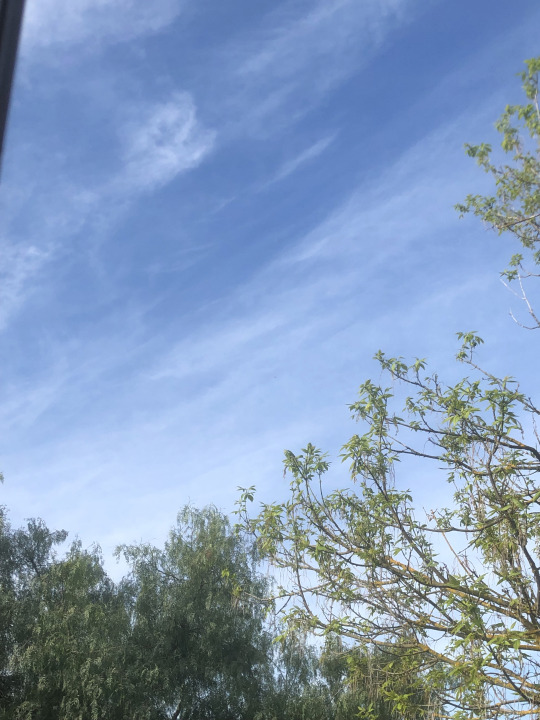


25.09.22
Currently listening to:
Tripping Over Air - Aiden Bisset
Such a pretty day today! I spent some time outside w my family and got a bit more maths done!
#studying#study aesthetic#vce#maths#student#study desk#study australia#aesthetic#study#studyblr#study blog#aiden bisset#trippingoverair#light aesthetic#aesthetic vibes#pretty#flower#moodboard ref
15 notes
·
View notes
Text
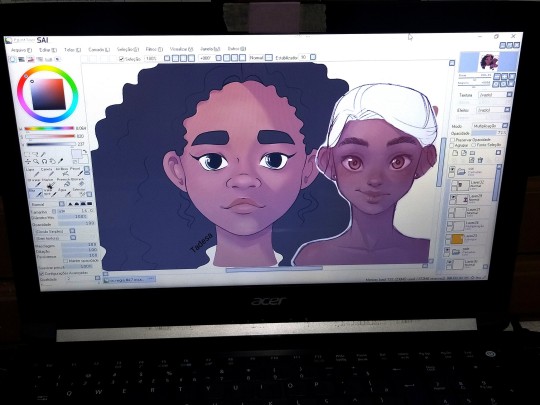
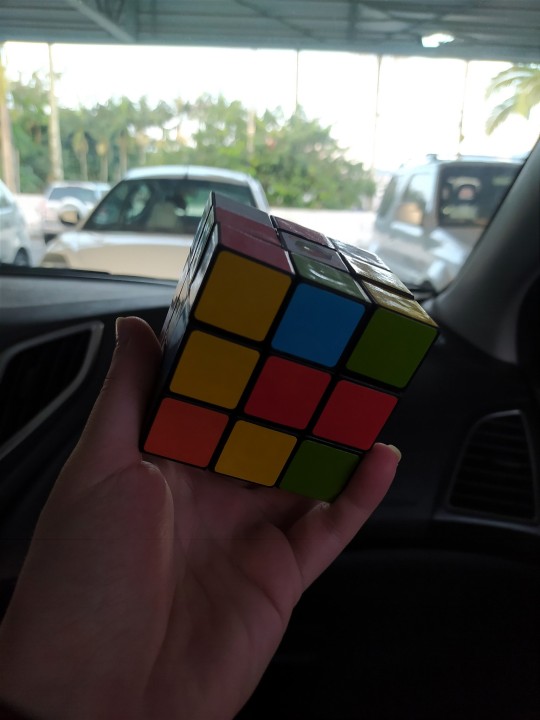
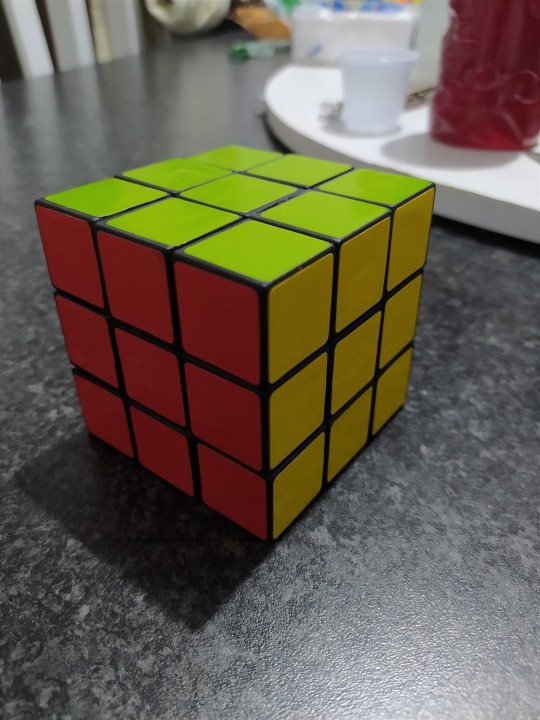

Aug 31st, 2022
In the last week of July, I... tantantantan... had my myopia refraction surgery!! Yeaeey. But oof, I had to be very brave, bcs it's not that confortable to see the doctor cutting your cornea...
Anyway, I knew I'd have to stay away from cell phone and computer screens. The good thing is that I had nothing left to do about the situation of my Master's application. Therefore I did some drawing BEFORE the surgery, and bought me a Rubik's cube to entertain myself AFTER the surgery. Of course I used some help, but I solved it in 2 days!!
In addition, my recovery is being a little slow bcs of the procedure chosen (PRK). I'm on the 33rd of post-surgery and I'd say I'm seeing 85% better than before. But it's normal, don't worry!!
#Studyblr#Mine#Pls I'm using a ref in my drawing. Only the left one is mine!#starrystvdy#problematicprocrastinator#studyvan#Heycoral#Heysaher#areistotle#Surgery#Tw surgery#Drawing#My art#Draw
3 notes
·
View notes
Text
I DO NOT WANT TO READ TWO ENTIRE CHAPTERS ON ATOMIC STRUCTURE I WANT TO KEEP READING RILKE'S LETTERS!
#im going to apply for a campus job and do neither xp#so frustrated! rn!#i wish my profs wouldn't rely on the ref text sm#like PLEASE ACTUALLY TEACH!#studyblr#starot
1 note
·
View note
Text
#gadgets#robotics#my links#technology#useful things#good to know#to do#duel links#useful#artificial intelligence#motivation#futurism#ref#studyblr#student#school#college
1 note
·
View note
Text
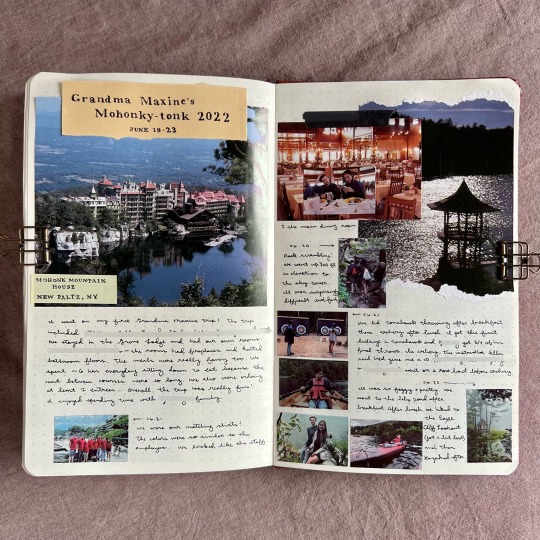
journal // @wyyae // insta: artwyy
#studyblr#studyspo#mine#bullet journal#bujo#ref#bullet journal spread#bullet journal inspo#bujo ideas#bullet journal ideas#diary#bujo inspo#bujo inspiration#study#bujospo#study aesthetic#bujo spread#notes#art#journal#scrapbooking#scrapbook#Mohonk#mohonk mountain#notebooktherapy
252 notes
·
View notes
Text
other wttt chars aesthetic moodboards as done by me

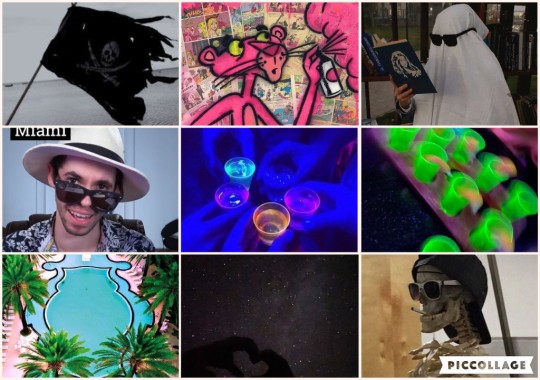





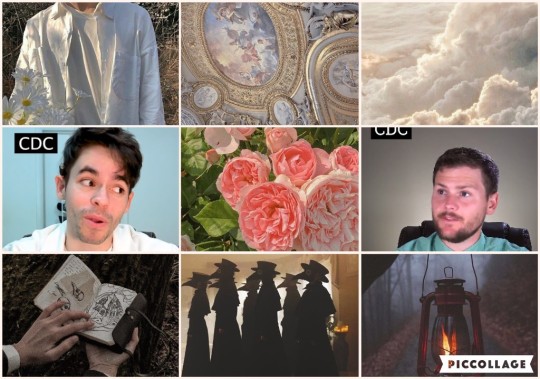


both cdcs- both cdcs with angelcore and a flower the reps good health and yea plaguecore
gov- i used light academia and plant mom and some naturecore
Greg- i brought back dark academia and webcore and added cafe aesthetic
socal- There is an island in Southern California that is home to a herd of bison, The Avocado Capital of the World is located in Southern California, you can thank SoCal for many hits that have played on Broadway, the aesthetics i used are beach day, greyish blue and Indicolite
Austin- Austin is ranked one of the most dog-friendly cities in the U.S. and Austin is the Live Music Capital of the World, I used green academia and vibrant academia
dc- he would love ducks and I put liminal space and Studyblr bc I like that the whole fandom agrees gov/dc works all the time
Miami- Miami is a great place for star-spotting, Miami was a popular spot for pirates like Blackbeard, Gasparilla, and Jean Lafitte, Miami is known to have the world’s largest collection of art deco architecture and Like gazing at graffiti murals? Head to Wynwood they look cool ngl, and the aesthetics i used are party animal I also used that to ref Miami's nightlife and i used chaotic academia
Chicago- I used brown aesthetic and Musical Academia also i found facts for Chicago, Chicago is known as the United States railroad capital and Chicago’s the birthplace of modern architecture
c!ben and cc!ben- director, travel and comedy aesthetics
nyc- analog horror aesthetic, cold blue aesthetic, and cryptidcore
after these i'm gonna release some duo/trio aesthetic moodboards i made
#wttt cdc#wttt gov#wttt dc#wttt greg the sound guy#wttt socal#wttt austin#wttt miami#wttt chicago#wttt cc!ben#wttt c!ben#cc! stands for content creator and c! stands for char#wttt#wttsh#welcome to the table#welcome to the statehouse#juli's aesthetic moodboards
20 notes
·
View notes